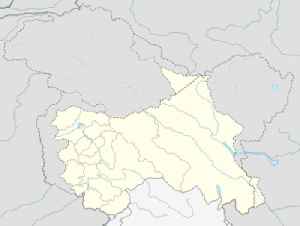Training to handle disaster emergencies held in Srinagar

Training to handle disaster emergencies held in Srinagar
Civil defence experts trained volunteers and locals on how to handle emergency situations such as fires, earthquakes, and snow avalanches at a training programme in the Kashmir valley.
The training programme was organised for the volunteers of different government and non-governmental organisations at Bilaliya Educational Institute, Nawab Bagh, and Baghwanpora-Lal Bazar Srinagar.
It was organised by the Kashmir Welfare Trust and Nigeen Tourist Traders Association in collaboration with the Civil Defence, Srinagar and J and K State Emergency Operation Centre (SEOC).
"The government has a lot of rescue forces, but they cannot reach every place.
It is important to prepare the community for such adverse situations.
We have trained the volunteers in Nigeen about search operations, first aid, and fire fighting," said Aamir Ali, Deputy Chief Warden Civil Defence Srinagar.
The aim of the five days programme was to train people on how to handle the emergency cases such as fires, earthquakes, and especially snow avalanches which have become common in the upper reaches of Kashmir Valley.


![PM Narendra Modi’s Srinagar visit, first since abrogation of Article 370 in J&K | Oneindia News [Video]](https://video.newsserve.net/300/v/20240307/1367924064-PM-Narendra-Modi-Srinagar-visit-first-since.jpg)